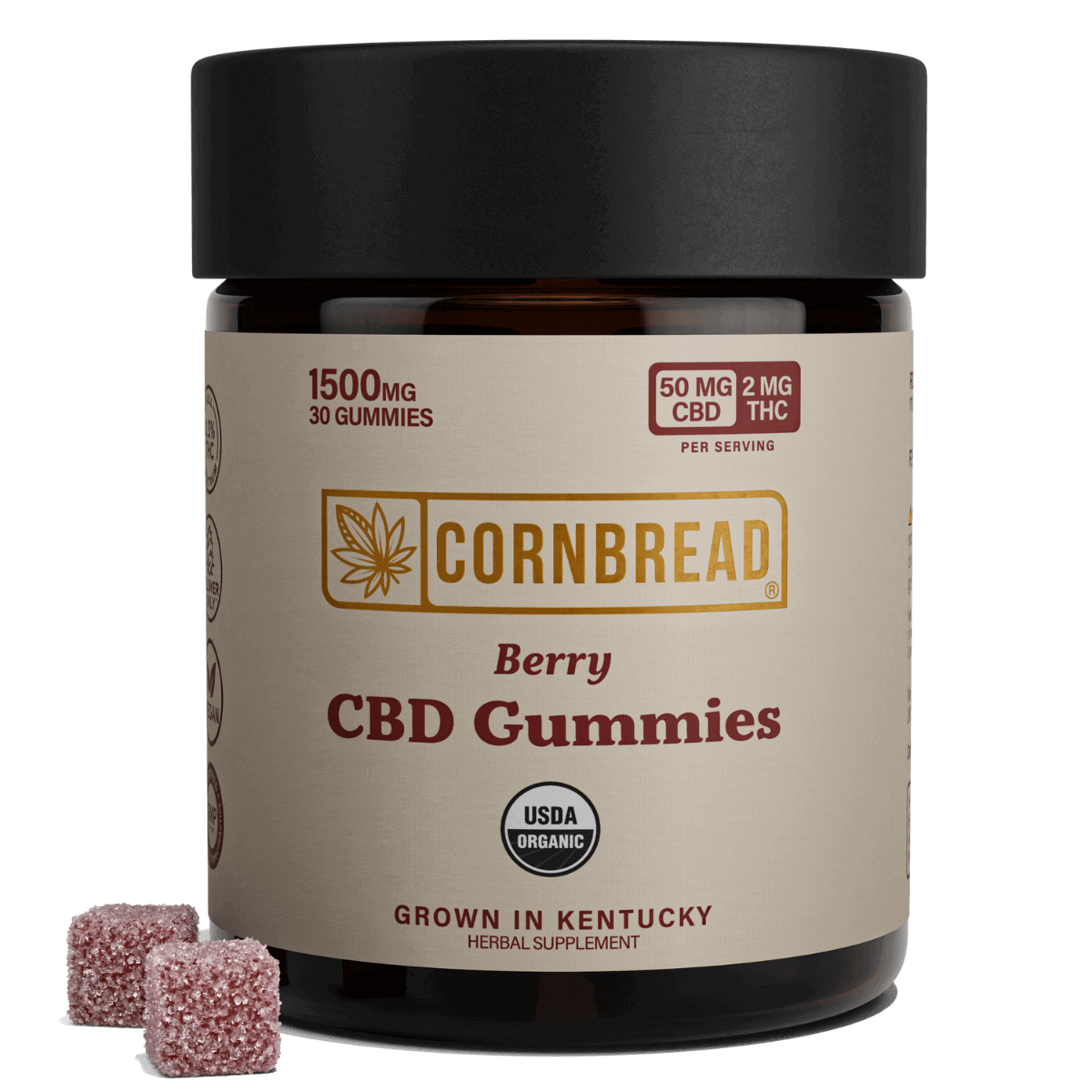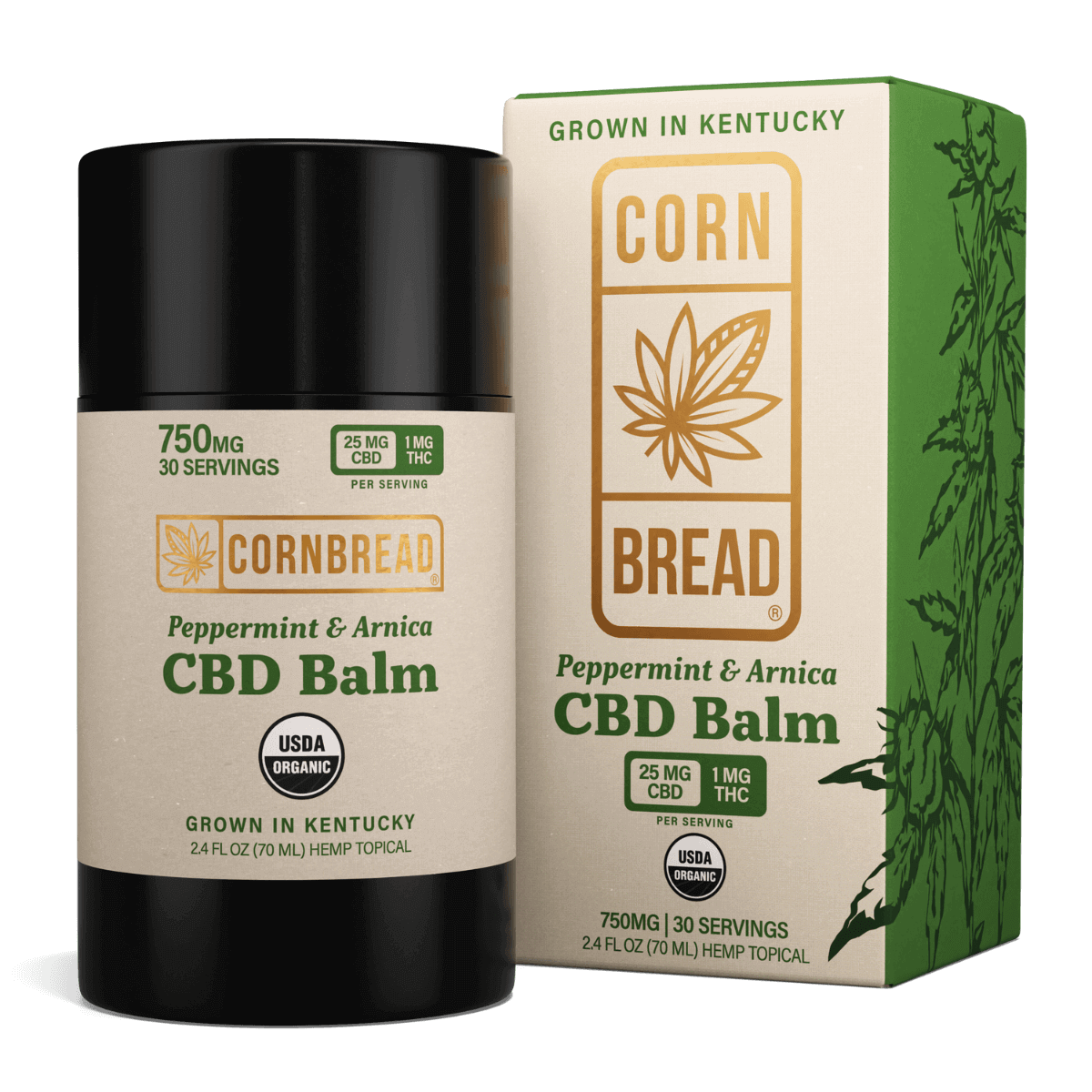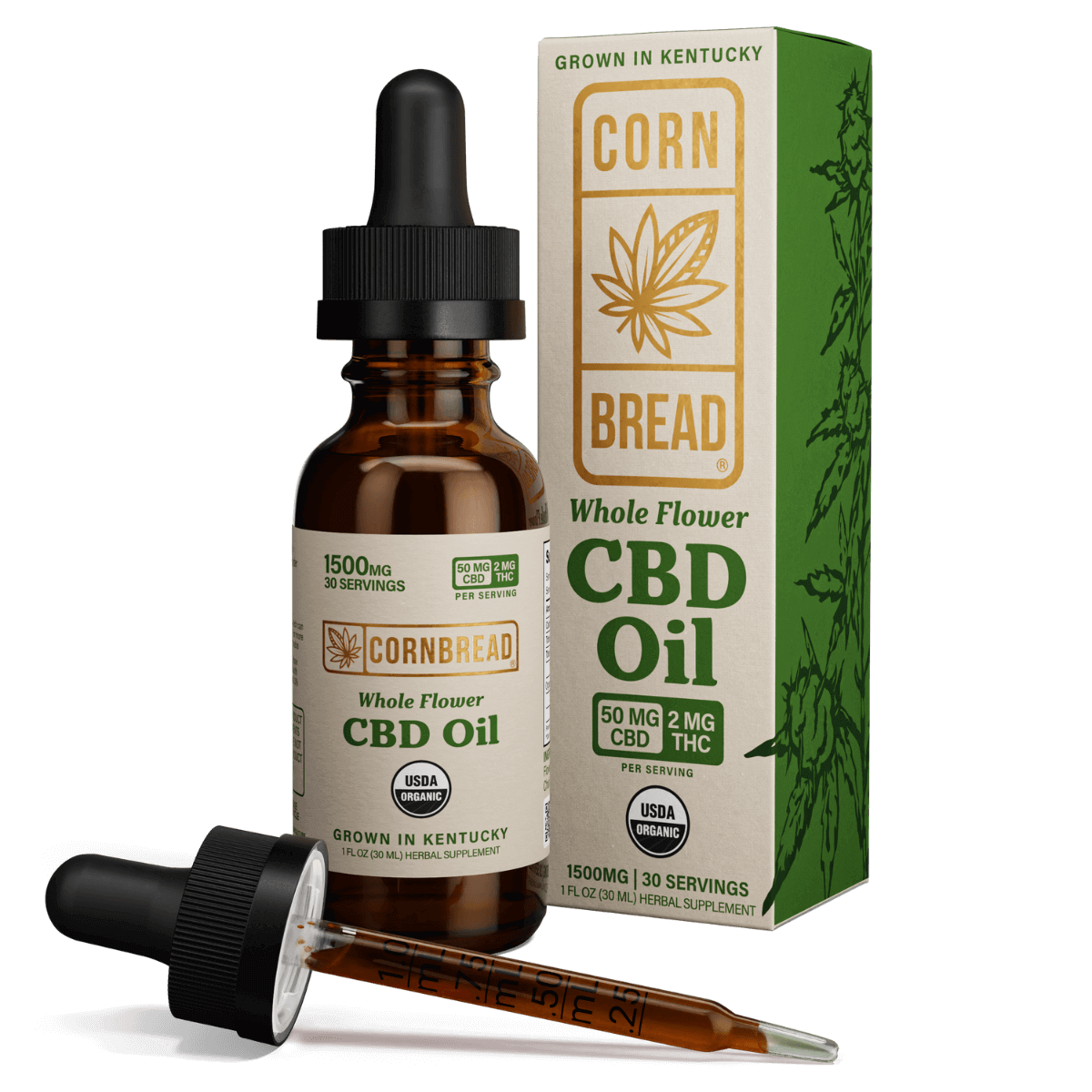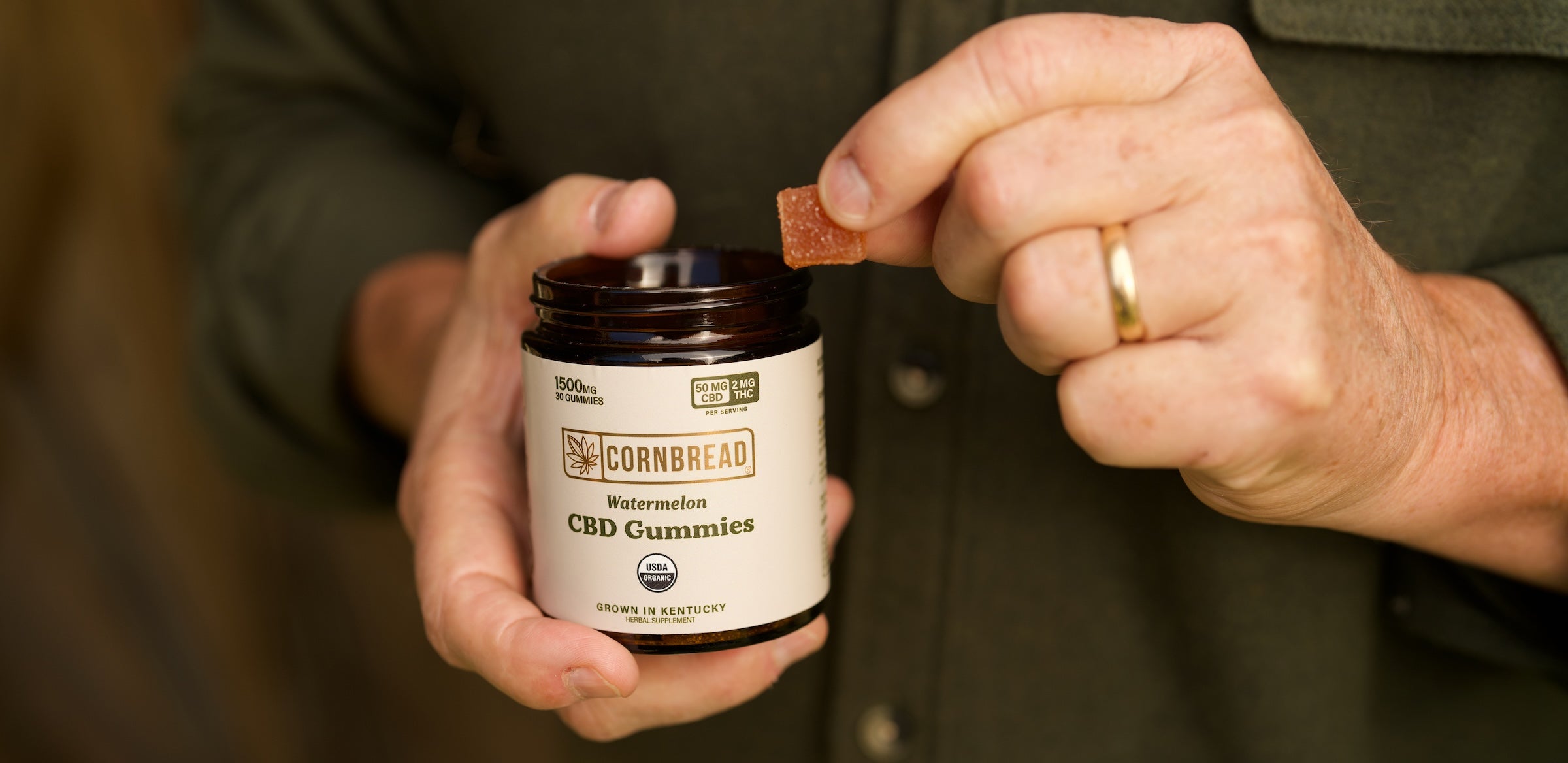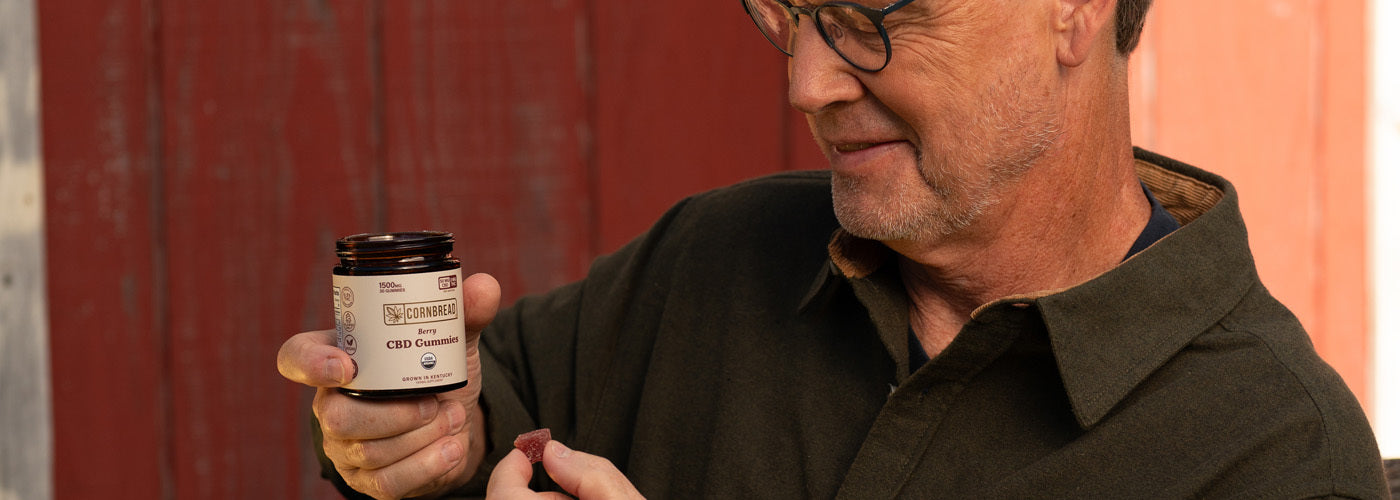Table of Contents
- The Hemp Plant
- Hemp Extract vs CBD Oil
- Hemp Oil vs Hemp Seed Oil
- Is Hemp Extract Similar to CBD oil?
- Is Hemp Extract Stronger Than CBD?
- What Is Hemp Extract Good For?
- What Is Better for Pain, CBD or Hemp?
- Will Hemp Extract Get Me High?
- Is Hemp Extract Legal
- Maximizing the Benefits of Hemp Extract
- Find the Highest Quality Hemp Extract at Cornbread Hemp
The terms “hemp extract” and “CBD oil” are on the rise, echoing the growing interest in the potential benefits of cannabis compounds. When it comes to hemp extract vs CBD oil, there are two big questions people want to know: Are they different? And, if so, which one is better? In this article, we’ll take a look at these two cannabis-derived products, clarify their distinctions, and help you make an informed decision about which one may align more closely with your specific wellness goals.
The Hemp Plant

Before we dive into hemp extracts, let’s take a step back and take a look at the hemp plant. Hemp is one of two varieties of the Cannabis sativa plant. The other — you may have heard of it — is marijuana.
Hemp has been around a long time — humans have been cultivating it for thousands of years for its versatile fibers and nutrient-dense seeds and extracts. Not only is it used for food products and wellness supplements, but it plays an important role in manufacturing textiles, paper, rope, and building materials.
Marijuana is well known for its higher levels of THC (tetrahydrocannabinol) — the psychoactive compound that produces a "high" feeling — and it contains lower levels of CBD. On the flip side, hemp contains low levels of THC (usually less than 0.3% by dry weight) and higher levels of CBD compared to marijuana.
Hemp Extract vs CBD Oil
Is hemp extract the same as CBD?
The terms “hemp extract” and “CBD oil” are often used interchangeably to refer to the same thing, but there are some nuanced differences between the two terms that are important to understand. Here’s what you should know about each one:
What is CBD oil?

-
CBD itself is one of more than 150 cannabinoids found in the cannabis plant known for its health-promoting benefits. Cannabinoids are compounds that interact with the body’s endocannabinoid system (or ECS), which helps regulate a variety of physiological processes including digestion, mood regulation, and stress response.
-
CBD oil contains a carrier oil (such as hemp oil, coconut oil, or olive oil) and CBD, which is its main ingredient.
-
The term "CBD oil" can encompass a broad range of products, which can be taken sublingually (under the tongue), in edibles, in capsules, or through topical products.
-
The cannabinoids in CBD oil can be extracted from many parts of the hemp plant, including the leaves, flowers, and stalks. This is why CBD oil is sometimes called hemp extract.
-
CBD oil can also contain a wide spectrum of cannabinoids (cannabis compounds) and other plant compounds. The cannabinoid content determines the type of CBD supplement. There are three main types of CBD:
-
Full Spectrum: Full spectrum CBD oil contains the full range of cannabinoids and compounds, including trace amounts of THC. The benefits of full spectrum oil are generally more pronounced thanks to what’s known as the “entourage effect” (more about that later).
-
Broad Spectrum: Broad spectrum CBD oil contains the various cannabinoids without THC (or with very little THC).
-
CBD Isolate: CBD isolate is CBD that’s been refined into a pure, crystalline form. It contains only CBD — no other cannabinoids.
-
What is hemp extract?
-
Almost all CBD oil is hemp extract, but not all hemp extract is CBD oil.
-
Hemp extract is a broader term than CBD oil, as it encompasses all the various extracts that are obtainable from the hemp plant or parts of the hemp plant (including the seeds, stalk, leaves, and flowers). It can be used to describe supplements rich in CBD or products like hemp seed oil or hemp oil, which are used for cosmetics and cooking and typically don’t contain significant amounts of CBD but are rich in nutrients like omega fatty acids.
-
Hemp extracts can also come as full spectrum, broad-spectrum, or isolate supplements, just like CBD oil.
Hemp Oil vs Hemp Seed Oil
As mentioned above, both hemp oil and hemp seed oil can both technically be considered hemp extracts.
Whereas CBD oil is extracted from the stalks, leaves, and flowers of the hemp plant, hemp seed oil comes from — you guessed it — just the seeds. As the seeds aren’t a rich source of CBD or other cannabinoids, hemp seed oil typically doesn’t contain CBD. However, it does contain essential fatty acids, such as omega-3 and omega-6, which makes this oil a popular choice for nutritious cooking and moisture-promoting skincare and beauty products.
Hemp oil is often just another name for hemp seed oil, but the term can also be used to describe full-spectrum hemp extract, which is obtained from the various parts of the hemp plant (not the seeds), as described above.
Hemp oil and CBD
Hemp oil and CBD are both products that come from the hemp variety of the cannabis plant, but hemp oil doesn’t necessarily contain CBD. It really depends on which kind of hemp oil you’re talking about. Hemp oil can refer to:
-
Hemp seed oil: This comes from the seeds of the hemp plant, so it doesn’t typically contain CBD — although it is rich in essential fatty acids.
-
Full spectrum hemp oil: This type of hemp oil could be considered to be the same as hemp extract, as it’s extracted not from the seeds but from other parts of the hemp plant. This means it should contain not just CBD but a range of cannabinoids (and less than 0.3% THC content in the U.S.).
Is Hemp Extract Similar to CBD oil?
Not only is hemp extract similar to CBD oil much of the time, but certain hemp extracts actually are CBD oil. Others, however, are not like CBD oil at all. Hemp seed oil (which, like it sounds, is extracted from the seeds of the plant) typically doesn’t contain CBD and won’t have the same therapeutic potential as CBD oil.
This is why it’s so important to read the label and certificate of analysis (COA) before making a purchase. A certificate of analysis is a document confirming the exact contents of a product, down to the percentages of each cannabinoid present, making it possible for you to know what you’re really buying.
Is Hemp Extract Stronger Than CBD?
The truth is that hemp extract isn’t inherently weaker or stronger than CBD. CBD strength comes down to the amount of CBD present in the supplement as well as other factors. For example, as mentioned above, a full spectrum CBD oil may bring about stronger effects as a result of the “entourage effect” — a phenomenon where the presence of a variety of cannabinoids seems to enhance the overall effects of a CBD supplement.
What Is Hemp Extract Good For?
If you’re seeking relief from discomfort or occasional sleeplessness, or looking for mood support, a hemp extract that’s essentially CBD oil can help address some of these common wellness concerns. Taking a full spectrum hemp extract can help optimize these benefits.
What Is Better for Pain, CBD or Hemp?
CBD — a compound most commonly derived from the hemp plant — has been found to effectively relieve aches and pains, like those that come from exercise-induced inflammation. When hemp extract contains CBD, it also has the potential to relieve similar aches and pains. The potential effectiveness depends on the amounts of CBD and other cannabis compounds present as well as the quality of the supplement. Full spectrum CBD oil is typically considered the most effective CBD supplement because all parts of the hemp plant work together to enhance the benefits.
Will Hemp Extract Get Me High?
THC (tetrahydrocannabinol) is the compound in cannabis that produces what’s known as a “high.” It’s found in large quantities in marijuana and smaller quantities in hemp — the two varieties of the cannabis plant. In fact, hemp plants in the U.S. must contain no more than 0.3 percent THC by weight.1 This amount of THC is basically insignificant. Therefore taking hemp extract shouldn’t result in a high feeling, but this could vary depending on the specific product and the individual.2
Is Hemp Extract Legal?
In the U.S., the 2018 Farm Bill federally legalized hemp and its derivatives, including CBD. However, this doesn’t necessarily mean hemp extract is legal in your own state, as state-specific regulations can vary widely. While some states have embraced hemp-derived CBD with open arms (that is, without restrictions), others have imposed limitations of varying degrees. Research your home state's laws to ensure you make informed choices when purchasing and using hemp extract products.
Maximizing the Benefits of Hemp Extract
As mentioned above, the phenomenon known as the "entourage effect" plays a big role in the therapeutic value of hemp extract. By selecting a full spectrum product, ensuring the presence of all the cannabinoids, terpenes, and other plant compounds found in hemp, you can experience stronger and more holistic benefits compared to isolated CBD oil products.
But not all full spectrum hemp extracts are created equal. As hemp wellness supplements are currently an unregulated market, low quality and sometimes downright fake products are rampant. When shopping for hemp extract products, look for manufacturers that undergo rigorous third-party testing. These tests confirm that actual cannabinoid levels align with label claims. Not only that, they screen for potential toxins and contaminants to ensure safety and purity. Always review the Certificate of Analysis (COA) before buying hemp extract to make sure you’re selecting a high-quality hemp extract product.
Additionally, as hemp is a bioaccumulator, which means that it absorbs toxins such as pesticides and herbicides from the soil it’s planted in, it’s important to know where and how the hemp is grown. This is because when you make an extract from contaminated hemp, the harmful toxins end up in the product. Hemp sourced from the U.S. and especially USDA-certified organic hemp is your safest option.
Find the Highest Quality Hemp Extract at Cornbread Hemp
At Cornbread Hemp, we understand the importance of high-quality CBD, or hemp extract, that you can count on daily. That’s why we offer the highest-quality CBD products, made from the flower only, and USDA-certified organic through every step of the process. All our CBD oil products contain the full spectrum of cannabis compounds, including 2 mg of THC (which is no more than 0.3%). Shop our CBD collection now.



